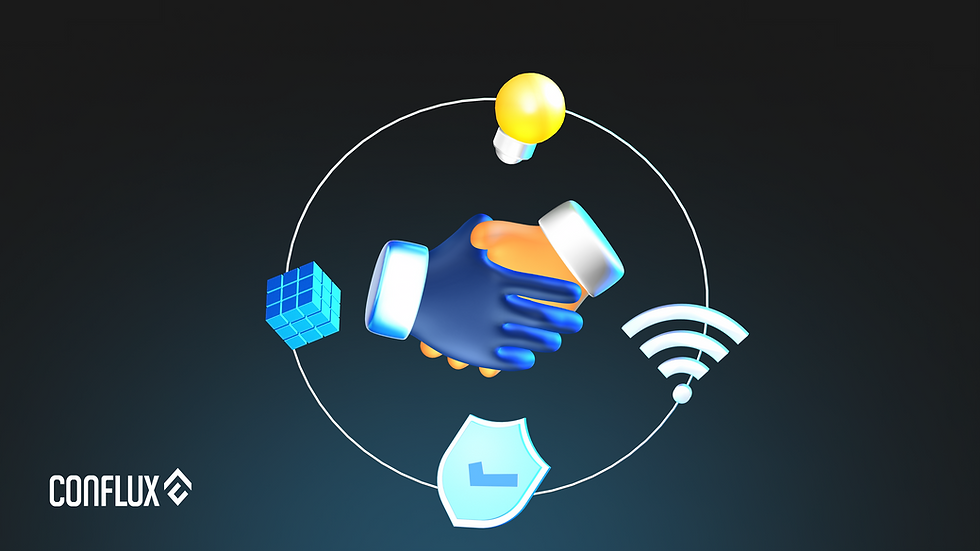Web3 and the Future of Decentralized Internet: A Case Study of Africa
- Conflux Network
- Oct 31, 2023
- 2 min read
Updated: Nov 22, 2023

In recent years, the internet has undergone a transformative evolution, moving beyond the centralized model of Web2 to embrace Web3—a decentralized internet powered by blockchain technology. Africa, with its vibrant tech scene and unique challenges, stands as a compelling case study in the ongoing shift toward a more equitable and inclusive digital landscape. In this article, we'll explore Web3's potential impact on Africa and how it can shape the future of the decentralized internet on the continent.
Web3: Beyond Centralization
Web3 represents a paradigm shift in how the internet functions. While Web2 relied heavily on centralized platforms and intermediaries, Web3 leverages blockchain technology to distribute control and ownership, placing individuals at the core of their online experiences.
Africa's Tech Potential
Africa has witnessed an impressive surge in technology adoption and innovation in recent years. With a burgeoning youth population and a growing appetite for digital solutions, the continent is poised to harness the transformative potential of Web3.
Blockchain and Financial Inclusion
One of the most promising applications of Web3 in Africa is in the realm of financial inclusion. Traditional banking services often leave vast segments of the population underserved or excluded. With blockchain-based financial systems, individuals in remote areas can access banking services, secure loans, and engage in cross-border transactions with ease.
Identity Solutions
Identity verification is another crucial aspect of Africa's digital landscape. Millions on the continent lack official identification documents, hindering access to essential services. Web3 can enable secure, self-sovereign digital identities stored on blockchain, empowering individuals to control their personal information and access services seamlessly.
Agriculture and Supply Chain
Agriculture is a cornerstone of many African economies, yet supply chain inefficiencies and fraud persist. Web3's transparency and traceability features can help reduce food fraud, ensure fair compensation for farmers, and improve the overall supply chain.
Governance and Corruption Mitigation
Web3 can also play a significant role in mitigating corruption and promoting transparency in governance. Decentralized, blockchain-based voting systems can ensure the integrity of elections and decision-making processes.
Challenges and Considerations
While Web3 offers immense potential for Africa, there are several challenges to address:
Internet Accessibility: To fully embrace Web3, Africa needs improved internet infrastructure, particularly in rural areas.
Digital Literacy: Widespread digital literacy programs are essential to empower users to navigate the decentralized internet effectively.
Regulation and Legal Frameworks: Governments must establish clear, supportive regulatory frameworks to encourage Web3 adoption while addressing potential risks.
Environmental Concerns: As with blockchain technology, energy consumption must be addressed to minimize environmental impact.
Web3 represents a paradigm shift in the digital world—a shift that could have profound implications for Africa. By leveraging blockchain technology, Web3 offers the potential to address long-standing challenges related to financial inclusion, identity, supply chain, and governance. Africa, with its burgeoning tech scene and entrepreneurial spirit, is well-positioned to lead the charge toward a more decentralized and equitable internet. As the continent continues to embrace Web3, the decentralized internet can serve as a catalyst for innovation and positive change, ultimately improving the lives of millions across Africa.



Comments